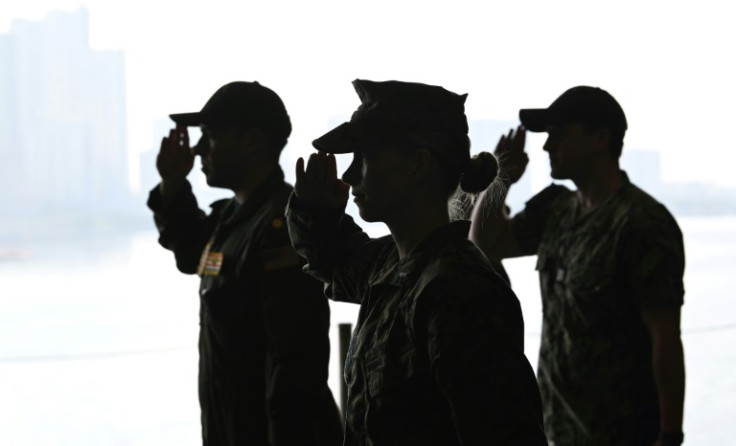The US And The Philippines Team Up To Tame China's Taiwan And South China Sea Ambitions
The U.S. is partnering with the Philippines to tame China's ambitions to unite with its breakaway province Taipei and take control of the South China Sea.
Last week, the two old allies announced an agreement whereby Manila will provide Washington access to military sites near Taiwan and disputed South China Sea areas.
That's a significant shift in the Philippines' policy during Rodrigo Duterte's days. Then, Manila chose to appease rather than confront Beijing in South China Sea disputes in exchange for financial aid to support the former president's ambitious infrastructure investment agenda.
"The recent developments in the U.S.-Philippines relations (expansion of EDCA sites, Balikatan exercise, 2+2 dialogue in Washington, DC) underscore the renewed impetus in bilateral ties, especially concerning regional security," Riccardo Cociani, principal analyst for Asia Pacific at Sibylline, told International Business Times.
He expects the unveiling of the new EDCA sites, which are strategically located near Taiwan and disputed waters in the South China Sea, to improve U.S. regional extended deterrence. But, as a result, it will escalate confrontations involving U.S. and Chinese military personnel and assets.
Manila's cozying up with Washington has drawn the angry protests of Beijing, with Chinese Ambassador to the Philippines Huang Xilian saying that Manila's move to give the U.S. access to new sites near the Taiwan Strait "has caused grave concern among Chinese people." In addition, he accused Washington of using the bases to promote its "anti-China agenda" at the region's expense.
Beijing's protests didn't surprise New York-based human rights and national security lawyer Irina Tsukerman, who has been critical to China's zero-sum geopolitical game. "In a typical fashion, China accuses the Philippines of pro-Taiwan military posture and politics over the mere fact of its agreement to host U.S. bases and its concern over China's threat to its territorial integrity," she told IBT. "China's geopolitical position is a zero-sum game: If you are not 100% for us, you are against us; typical of both CCP structure as well as its historical attitude towards smaller countries, which, in Beijing's view are vassal states which should have no independent say and only follow the political line of the major regional powers."
Cociani provided further insight into the Manila-Washington agreement supporting the view that it is a defensive rather than offensive move. "The sites allow U.S. forces to store 'prepositioned materiel,' including 'humanitarian assistance and disaster relief equipment' and 'defense equipment,' among others," he explained. "Furthermore, EDCA allows for U.S. forces to be deployed on a rotational basis rather than permanently, as well as to support the Philippines' 'maritime security' and 'maritime domain awareness,' among other purposes."
Still, Cociani sees Manila facing a trade-off between increased military security, which comes with closer ties with Washington, and increased trade and investments with more close ties with Beijing. "While renewed U.S.-Philippines security and defense cooperation efforts will benefit the Philippines' security, Manila will need to contend with increased risks of retaliation by Beijing in the economic domain," he explained. "Despite Washington being the preferred security partner, Beijing will likely remain a major trade partner for Manila. The latter wish to maintain and expand trade relations and investments from China."
That's why Manila will have to balance its economic interests with China with its security and its defense interests with the U.S.
Meanwhile, Tsukerman downplayed China's threats to the Philippines as mere intimidation to steer Manila away from Washington rather than countering potential military action. "The U.S. is the real adversary from Beijing's perspective, and the priority is to oust any support for its regional involvement and assistance to Taiwan," she said. "The idea is to leave Taipei completely isolated."
Yannis Tsinas, a former Washington military diplomat analyst, believes that China has yet to develop the military capabilities to openly challenge the U.S. and its alliances in the South China Sea and the Taiwan region. "Until then, China's threats will be just noise," he told IBT.

© Copyright IBTimes 2024. All rights reserved.






















